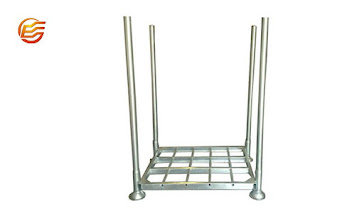The Future of Tyre Rack Manufacturing
In the world of logistics and storage solutions, efficiency and innovation are paramount. Among the unsung heroes of warehouse management is the humble tyre rack—a crucial component in organizing and preserving tyres efficiently. As industries evolve and supply chains become more intricate, the demand for reliable and advanced tyre rack solutions has never been greater. Today, we delve into the realm of tyre rack manufacturing, exploring the innovations, challenges, and the future of this indispensable industry.
Understanding Tyre Racks: More Than Just Storage
Tyre racks, often underestimated, play a pivotal role in optimizing space and ensuring the integrity of tyres during storage and transport. These racks are designed to securely hold tyres in place, preventing deformation and damage while maximizing warehouse space utilization. From automotive manufacturers to distributors and retailers, the need for durable, adaptable, and cost-effective tyre storage solutions is universal.
The Evolution of Tyre Rack Manufacturing
Historically, tyre racks were basic, primarily constructed from steel or wood. However, with advancements in materials science and manufacturing techniques, modern tyre racks have evolved significantly. Today, manufacturers employ a variety of materials including high-strength steel, aluminum, and even advanced polymers to create racks that are lightweight yet robust, resistant to corrosion, and easily customizable to fit diverse storage requirements.
Innovations Driving the Industry Forward
The landscape of tyre rack manufacturing is characterized by constant innovation. Manufacturers are integrating advanced technologies such as automation and robotics into production processes to enhance efficiency and precision. Computer-aided design (CAD) and simulation tools allow for the rapid prototyping and optimization of rack designs, ensuring they meet stringent quality standards and specific customer needs.
Moreover, sustainability has become a key focus in tyre rack manufacturing. Companies are increasingly adopting eco-friendly materials and manufacturing processes to minimize environmental impact. Recyclability and reusability are prioritized, aligning with global efforts towards sustainability and corporate responsibility.
Challenges and Solutions
Despite the advancements, tyre rack manufacturers face several challenges. One significant issue is the demand for racks that can handle a wide range of tyre sizes and weights while maintaining structural integrity. Customization is crucial, as each customer may have unique storage requirements based on tyre dimensions, load capacities, and warehouse configurations.
To address these challenges, manufacturers are leveraging data-driven insights and feedback from customers to refine their designs continuously. Collaborative partnerships with logistics experts and end-users enable manufacturers to develop tailored solutions that optimize space, enhance safety, and streamline operations.
The Role of Automation and Technology
Automation is reshaping the tyre rack manufacturing process. From automated welding and cutting to robotic assembly, automation not only accelerates production but also improves consistency and quality. Robotic systems are used for handling and stacking finished racks, minimizing human error and maximizing efficiency.
Furthermore, advanced sensors and IoT (Internet of Things) devices are integrated into racks to provide real-time data on factors like temperature, humidity, and load capacity. This data allows warehouse managers to monitor tyre conditions remotely, preemptively identify maintenance needs, and optimize storage space utilization.
Looking Ahead: Future Trends and Opportunities
The future of tyre rack manufacturing is bright, driven by technological advancements and evolving market demands. Here are some key trends shaping the industry's future:
- Smart Racks: Integration of IoT technologies for real-time monitoring and predictive maintenance.
- Customization: Increased demand for bespoke solutions tailored to specific customer requirements.
- Sustainability: Continued focus on eco-friendly materials and processes to reduce environmental impact.
- Automation: Further adoption of robotics and AI to enhance production efficiency and product quality.
As industries continue to expand globally, the demand for efficient storage solutions like tyre racks will only grow. Manufacturers poised to innovate and adapt to these changing dynamics will thrive in the competitive landscape.
Conclusion
Tyre rack manufacturing is undergoing a transformative period driven by innovation, technology, and sustainability. From traditional steel racks to smart, customizable solutions, the industry is evolving to meet the diverse needs of modern logistics and warehouse management. As we look towards the future, collaboration between manufacturers, logistics providers, and end-users will be essential in shaping the next generation of tyre rack solutions. Embracing these innovations will not only drive efficiency and profitability but also contribute to a more sustainable and resilient supply chain ecosystem.




Comments
Post a Comment